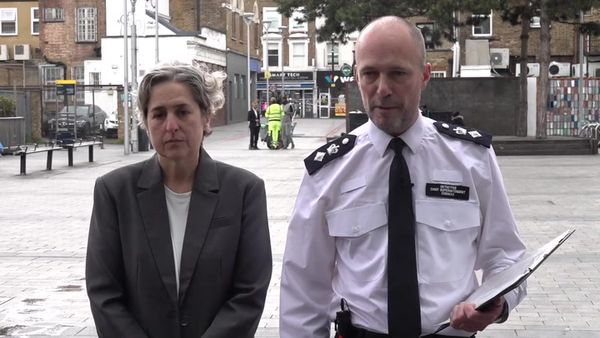An emergency department director has conceded a child who died at Canberra Hospital should have been seen four-and-a-half hours sooner.
The ACT has struggled to care for critically ill children for many years, but the five-year-old's death was a "catalyst" for change, Canberra Health Services chief executive Dave Peffer said.
On Thursday, Mr Peffer and Dr Sam Scanlan were questioned at a coronial inquest into the death of Rozalia Spadafora.
Rozalia is believed to have died on July 5, 2022 of myocarditis, caused by influenza A.
Dr Scanlan agreed that the little girl, who waited five hours in emergency, should have been seen in 30 minutes.
Told to go home?
Rozalia's family were visibly upset when Dr Scanlan said he had not looked into their claim that a nurse told Rozalia's mother to take her home.
Dr Scanlan could also not answer questions such as why a clinical initiatives nurse was not on shift or whether the new digital health record system had improved clinical outcomes.
Coroner Ken Archer said Rozalia's mother Katrina arrived at the emergency department with her sick daughter in her arms.
"[She] was told to take Rozalia to the hospital, and she did," Mr Archer told Dr Scanlan.
"Rozalia stood in line and stood in line.
"Does that strike you as being strange?"

He asked why the fact Rozalia had been seen by a general practitioner did not factor into her triage.
"It didn't seem to mean anything," Mr Archer said.
A lawyer representing the Spadafora family, Dan Shillington, asked Dr Scanlan about an allegation that a nurse told Rozalia's mother "How about you take her home to the GP tomorrow as there will be a four-hour wait [for pediatric patients]?"
Dr Scanlan said he wasn't aware of the alleged comment but "it's not the way we want to be speaking to our families".
Mr Peffer said despite "a concerted effort from the front door to the back door" to reduce emergency wait times, he was not happy with the progress that had been made.
Unnecessary ED trips

The emergency department has faced an increase in demand, primarily for children under four and young adults, Dr Scanlan said.
He said many of those people did not need to be in the emergency department, but they could not access their usual GP.
Concerned parents often take children to the emergency department during the flu and COVID season, especially after-hours, he said.
Mr Archer pointed out that Rozalia's mother "had done a great job in accessing clinical assistance outside of the hospital setting.
"[The final straw was] a GP who thought that there was something beyond her understanding [and] decided the safest place for Rozalia was at the hospital," he said.
'Far from perfect' digital health record
Dr Scanlan said a system that was expected to improve the hospital was "far from perfect" and had "ongoing issues".
The coroner said the digital health record "has great potential in improving processes of care" but it appeared that "significant weight" was being placed on it to fix the hospital.

When asked if there had been any tracking of whether the digital health record had improved clinical outcomes, Dr Scanlan said that remained "untapped".
"It's far from perfect and there are ongoing issues that we are still working through," he said.
On the day Rozalia died, two emergency doctors thought the other had been allocated to her because the paper-based rostering had inconsistent information.
Dr Scanlan said he only realised a month ago that inconsistencies remained, but they now use an updated paper-based system.
Improvements
Dr Scanlan said caring for critically ill children in the ACT had been an issue "for decades".
Mr Peffer agreed Rozalia's death was a "catalyst" for change.
"This very tragic event, I have no doubt that this is what has propelled us," he said.
Dr Scanlan also highlighted changes such as rotating emergency and intensive care doctors through pediatrics, recruiting a pediatric specialist for the intensive care unit, and a new system to alert doctors of urgent pathology results.
He also said the digital health record contained all patient information and forced doctors to re-assign patients at sign-out.
Mr Peffer said on the new Canberra Hospital will have pediatric beds in the intensive care unit, a dedicated pediatric stream in the emergency department and a separate space for children to be triaged
He also said the pathology lab will soon be able to process add-on tests automatically, with no human intervention required, and directly update the digital health record.







